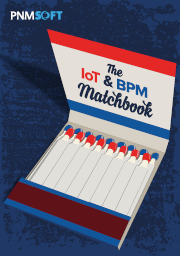Home / Resources
Resources
Discover a Wealth of BPM Knowledge and Expertise at BPMInstitute.org!

Business Architecture: A Noble Profession
The Profession
Let’s take a little time to think together about this profession, this discipline, that we call business architecture. It’s not uncommon to find discussions about how to define this discipline, its responsibilities, and where it should report in an organization structure. Let’s take a slightly different perspective here on the nature of this work.

Requirements for Operational Excellence Success
In the past few years Operational Excellence (OpEx) has become one of the most prominent trends in the improvement arena, many large corporations have ambitiously applied OpEx. Because the results have often been extremely good, this has stimulated growing interest among other organizations. A serious drawback of the increasing attention that OpEx is receiving is that some companies choose to be trendy and simply follow the herd without questioning, adapting and designing an OpEx program to suit their own specific needs.

Cognitive BPM Business Processes Awaken!
It should come as no surprise to all serious professionals that the age of Artificial Intelligence, Machine Learning, and Data Analytics is here – this time, to stay for good.
The first time around, back in the early 80’s to mid-90’s – a period of roughly two decades – AI got a lot of exciting hype, especially around the topics of Expert Systems, Natural Language Processing, and Computer Vision. The premise underlying all of AI at that time was that the human capability of learning was really a set of as yet unknown algorithms that knew how to take data of various types and reason from it. However, the common perception was that the promise of AI had not been met.

Real Business Architecture in Action© Part 2 of 4
This is the second article in a 4-part series of articles on architecture presented by the BAInstitiute.
In the first article of this series, the reader was asked to visualize how to create a typical low-level workflow model from an enterprise template of architectural primitives or formally defined elements of the enterprise. In the Business Architecture (BA) tool referenced in the first article, all of these design elements were operationally current and available from the enterprise template to quickly build low-level workflows. The workflow creation was illustrated in a short youtube animation on how to use the enterprise template to assemble a generic workflow.

Beyond DMN1.1: What’s Next?
With the (almost) official release of DMN1.1 we find ourselves at an interesting crossroads in the industry as the concept of consistently modeling decisions becomes more widespread. It seems clear that we’ve moved from questions of “What is this?” to “How can we effectively leverage it?”. A plethora of companies have developed platforms to support DMN or at least support it through some kind of adapter. Gartner has commented on it and MISMO (Mortgage Industry Standards and Maintenance Organization) is moving towards adopting it as an official standard for exchange and interchange in the mortgage industry.
This crossroads also includes fundamental questions surrounding what we can do, what we can’t do, and what we should be doing with the standard. I’ve seen this manifest itself in two primary ways:
- Modeling vs. Implementation
- Methods to implement, share, disseminate and execute decision logic
These will both be discussed here.

Designing an Effective Business Architecture Team
As organizations set out to establish their own internal business architecture practices, some of the most frequently asked questions are about how to structure the business architecture team and role. These are indeed important considerations because the structure significantly contributes to both the effectiveness and success of a business architecture practice. How the team is structured and positioned, and how the business architect role is defined directly and indirectly speak volumes about strategic importance, scope of responsibility and key relationships. Certain choices made up front will make it easier to obtain organizational buy-in and perform the role at a strategic level.
Key Structural Decisions
While there are certainly other considerations, a few key decisions need to be made once an organization has decided to formalize a business architecture practice.

The Systems Approach to Performance Improvement: A Personal Experience
In the late 1970’s, I was a training manager in charge of teller training at a bank in the Midwest. I read Geary Rummler’s article “You Need Performance, Not Just Training” and experienced a Eureka! moment because I had just witnessed the exact scenario described in the article: an inept attempt at engineering the desired performance of tellers. This is the story of what happened before and after I applied Rummler’s principles of systematic performance improvement.

Dealing with Cultural Challenges in Operational Excellence
Operational Excellence focuses on providing the best execution of service and process for the benefit of the customer and the organization. It is not a proprietary program or methodology; rather, the term usually represents a conglomeration of process methods and techniques to improve operational discipline, its performance metrics, and customer satisfaction.
Operational Excellence is an enterprise approach. Companies want to address more end-to-end processes, going beyond earlier smaller process improvement projects in one department. For end-to- end processes to be successful organizations need to have consistent execution aligned with organizational purpose, leadership accountability that spans organizational boundaries, and employee skills and behaviors that see the flow of work across the organization and make results happen for the customer.

Real Business Architecture in Action© Part 1 of 4
This is the first article in a 4-part series presented by the BAInstitute.org.
For many new business and IT professionals entering the field of Business Architecture (BA), an exciting opportunity is at hand. However, these new entrants must consider beginning their career expanding endeavors with a clear and solid foundation in architecture principles. In this article, the reader is asked to participate in a visualization exercise in order to understand real Business Architecture in action.

Implementing Enterprise Business Process Management – The change starts with the practitioner
Over the past year, our Business Process Excellence practice has been working to develop an Enterprise Business Process Management (BPM) Framework for our organization, with implementation beginning this year. We utilize Lean, Six Sigma, Workout, Kaizen and facilitation methods to improve business processes that drive measurable business outcomes. BCBSNC is an $8 Billion dollar business with over 4500 employees and have had an established Business Process practice since 2008. We have a very strong brand and have driven over $80+ million in results since inception.

Operational Excellence and Superior Customer Experience
Each quarter, the American Customer Satisfaction Index issues an update of overall U.S. customer satisfaction. The national ACSI score for the period 1994 through 2015, as depicted below, reflects an aggregate of customer satisfaction with companies that comprise a large cross-section of the economy.*

The Eloquent Business Architect: Lessons from the Field
hot button word – Noun
i. a word that triggers a highly charged emotional or political response

When Doing Less Gets You More
Author’s Note: I originally learned about the laws of subtraction some years ago when I was leading a research and innovation organization. The six principles in this article came from The Laws of Subtraction: 6 Simple Rule for Winning in the Age of Excess Everything by Matthew E. May. Business architects can apply these principles to produce more value and raise their level of success in any organization.

The IoT & BPM Matchbook
IoT is Hot. Not surprisingly, when you picture wearable devices, sensors and smart machines that are connected to the internet – all eager to make lives easier, provide information, react and interact with the human world. But in the business world, something is missing. Where is a system that can integrate IoT devices with mission critical business processes?
That system is very likely BPM. Business Process Management suites have become the leading technology for fast, enterprise-changing systems which optimize and streamline workflows for organizations in nearly every industry.
What if these two awesome forces – IoT and BPM – could be combined?
In this pocket-sized BPM & IoT Matchbook, we explore the possibilities opened by matching IoT devices with BPM technology.

The Process Bulldog
The Process Bulldog is a lynchpin role at the heart of a healthy process culture. This role is the connection layer of your process governance structure – linking the vision of the leadership team with the creativity of the process owners and participants, the people who are involved in process challenges every day. Every organization needs one.
We previously called this role the Lead Process Champion, but at our Promapp User Summits this year the term ‘Process Bulldog’ was used to describe the attributes needed to succeed as a process champion – and everyone loved it.

Five Pitfalls of Organizational Process Metrics
Traditional metrics have historically focused on financial and operating factors. What is newer is organizational process metrics or metrics that measure how a process works from the company point of view and the customer point of view. How is the company doing at meeting a customer needs (such as accuracy, responsiveness, service, speed, completeness) and how is the process doing being efficient and effective so the company can be competitive in the market place at a good price?
This article lists five key pitfalls that organizations face as they start an Organizational Process Metrics initiative and implement it across the company.
Pitfall #1 – Where’s the Decision and Action?

FITARA: Empowering CIOs to Improve the Business of Government
“Our guidance takes major steps in ensuring CIOs have a seat at the table for technology-related budget, procurement, and workforce matters. [It] is centered on a ‘common baseline’ that outlines the roles and responsibilities for agency chief information officers and other senior agency officials. More importantly, it establishes a groundwork for productive partnerships among these leaders to make IT decisions that better support [their business] mission.” – U.S. Chief Information Officer (CIO) Tony Scott (upon releasing the final Federal Information Technology Acquisition Reform Act (FITARA) guidance from the Office of Management and Budget (OMB)
Passed by Congress in December 2014, the Federal Information Technology Reform Act (FITARA) grants more influence and control over investments in information technology (IT) to agency’s CIOs.

Beyond Dashboards – Predictive Analytics and Decision Management
Practitioners in our field have long been evangelizing on the critical link between decision management and predictive analytics. As James Taylor accurately and succinctly stated “Decision Management operationalizes predictive analytics. Traditional approaches to analytics are hard to scale and hard to use in the real-time environment required in modern enterprise architectures.”
On cue I noted with great interest several writers predicting analytics trends for 2016. These included:

A ‘Simple as Possible’ Enterprise Diagnostic Method
I suspect we all agree that it’s very important for business architecture to demonstrate valuable results in a reasonable timeframe. There is nothing more discouraging for business architects and their sponsors than effort spent on modeling for its own sake, or continuous planning to plan the plan. Here, in this article, we have a method that quickly leads to tangible results, while building the foundation for a continuous flow of valuable results from business architecture.

Case Study: Business Architecture at United Airlines
Launching a business architecture program is challenging. Culture, politics, and even our own thinking present significant challenges. Though the challenges are great, the benefits are even greater. Organizations struggling to realize their goals and move their companies forward are in desperate need of the solutions business architecture offers. This webcast features two industry experts who will share their insights into the world of Business Architecture, including the challenges, the opportunities and the road ahead.













